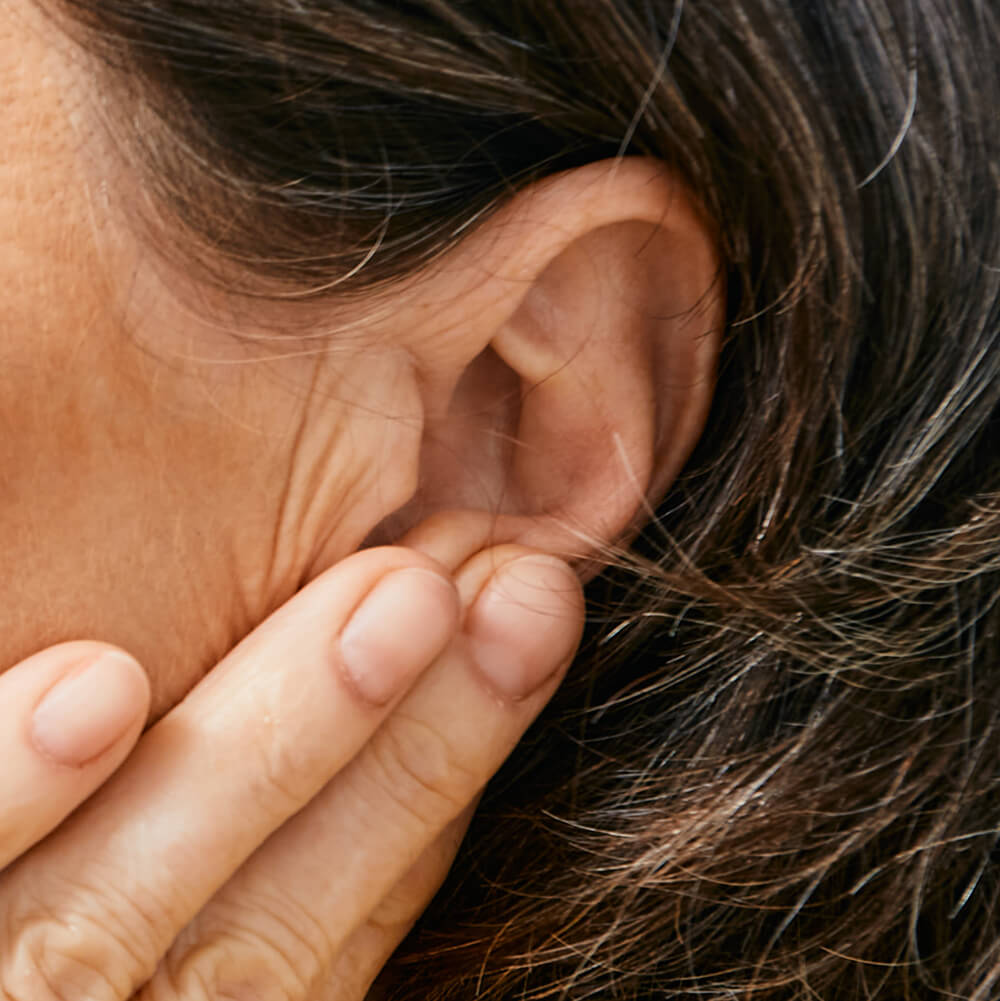Tinnitus

Known commonly as “ringing of the ears,” tinnitus is when a person hears a sound without the stimulus from an external source.
The sound may appear as a buzz, whistle, roar, crackling, whoosh of air, or in rare cases, music. These sounds may last for a short time, or it may be chronic.
The sound varies depending on the person; it may appear as a rush of air, a clicking, cracking, pop, whistling, or in some rare cases, music. For some, the sound lasts just five minutes, while others experience chronic tinnitus, which means this phantom sound accompanies them all day.
Prevalence of Tinnitus
Ten percent of adults in the US, nearly 25 million people, experience tinnitus. It may affect anyone at any time. Most people have had short experiences with tinnitus. Approximately 60% of veterans returning from combat zones report cases of tinnitus and hearing loss.
Have you ever been to a concert or listened to music at a high volume – and then experienced a ringing sensation in your ear afterward? This is tinnitus. Many Americans have reported the experience of tinnitus for short bursts – as brief as five minutes.
Types & Causes of Tinnitus

Subjective Tinnitus
Objective tinnitus
In the case of subjective tinnitus, noise-induced hearing loss and age-related hearing loss are the most common causes of tinnitus. Sensorineural hearing loss damages the hair cells of the inner ear, which do not regenerate.
Other causes include blockage in the ear canal from earwax or problems with the bones of the ear. Certain classes of drugs, such as medication used in chemotherapy or antibiotics such as aminoglycosides, may cause damage to inner ear hair cells, leading to tinnitus. In the rare instances of objective tinnitus, medical conditions related to the cardiovascular system are the culprit.
In terms of treatment, in the case of objective tinnitus, treating the related medical conditions, such as lowering one’s blood pressure with medication, may, in effect, cease tinnitus symptoms. However, for most cases, there are solutions to manage the symptoms.
Tinnitus and Hearing Loss

Damage to the inner ear hair cells may cause tinnitus and hearing loss.
Researchers have suggested that when these cells are damaged, they send phantom signals to the brain to be registered as sound. This sound is what we recognize as tinnitus.
Tinnitus may appear if someone experiences age-related or noise-induced hearing loss. In these cases, damage to inner ear hair cells may cause them to send phantom signals to the brain to be registered as sound.

Addressing Tinnitus
Tinnitus is a frustrating and life-altering condition, especially for people who experience chronic tinnitus. Sadly it has no definitive cure, although treating related medical issues and addressing hearing loss often alleviates tinnitus symptoms. Since tinnitus often accompanies hearing loss, treating tinnitus with a hearing aid is the best solution to reduce or mask the sounds. Addressing tinnitus can help improve other conditions, such as anxiety, stress, sleep deprivation, and depression. Contact us to learn more about our tinnitus management options.
